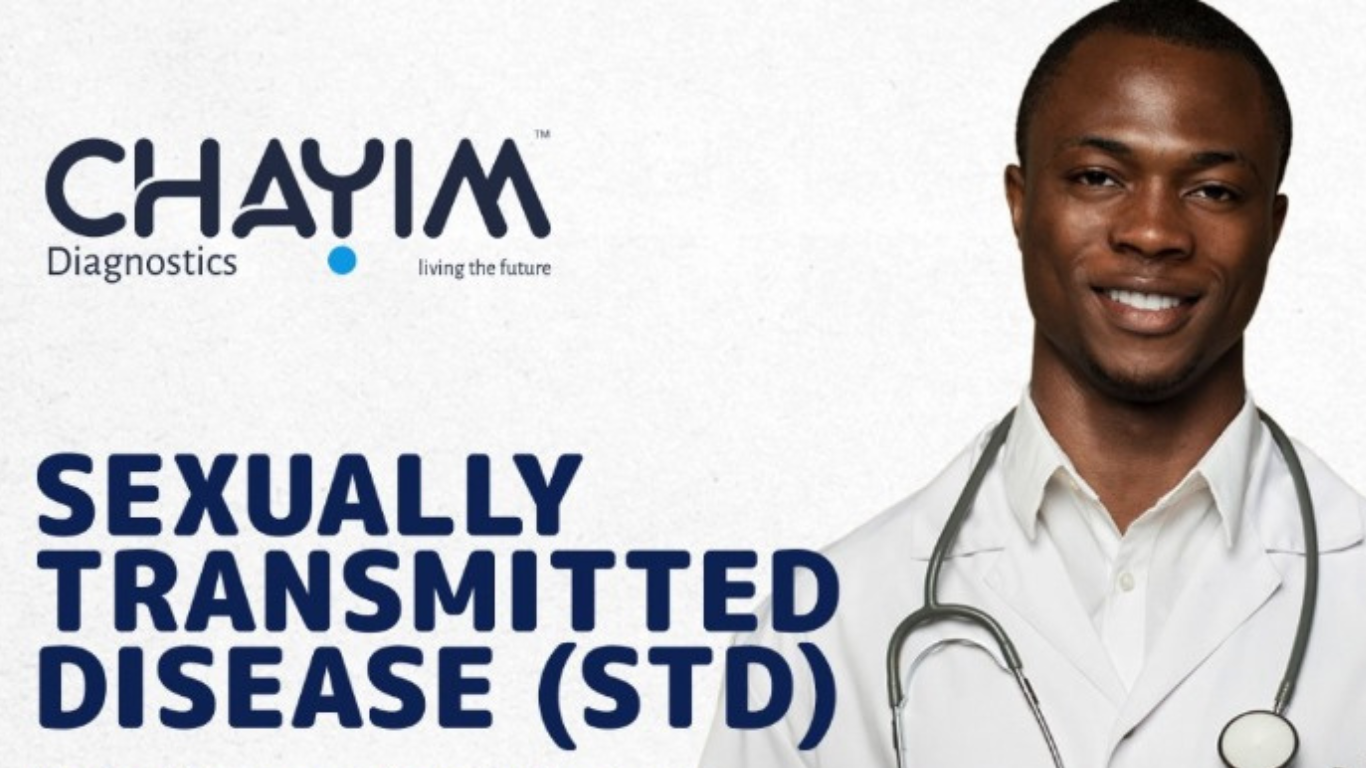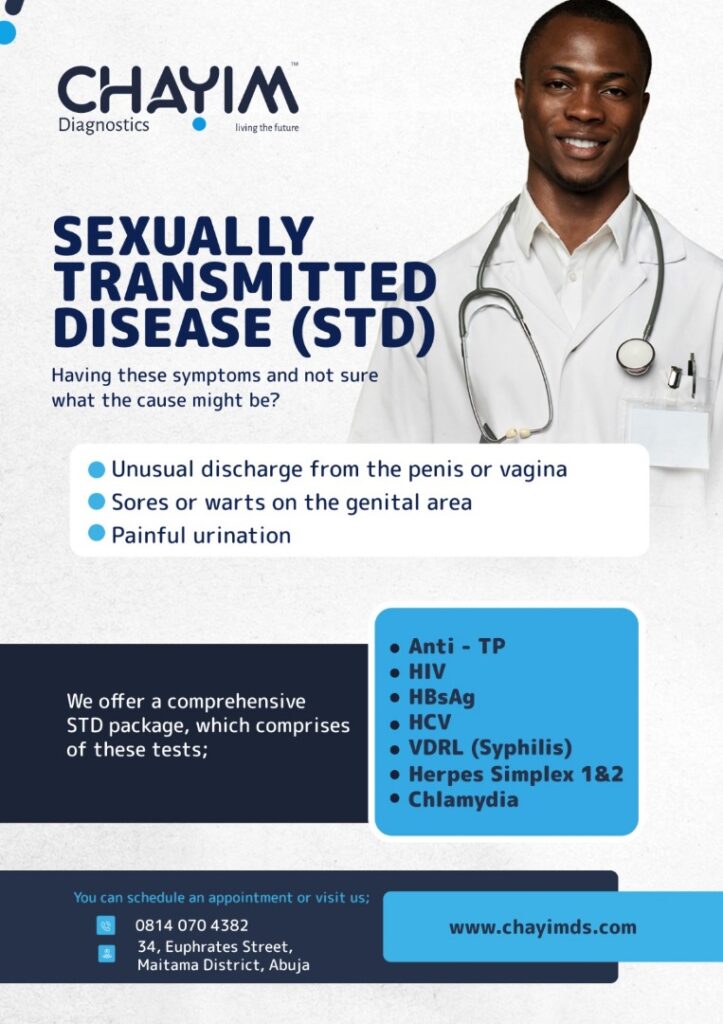SEXUALLY TRANSMITTED DISEASES (STDs)

Sexually Transmitted Diseases (STDs), are diseases that are primarily transmitted through sexual contact, including vaginal, anal, and oral sex. These diseases are caused by sexually transmitted infections which are further caused by bacteria, viruses, parasites, or fungi, and they can affect anyone who is sexually active, regardless of age, gender, or sexual orientation. STDs pose significant public health challenges globally, with millions of new cases reported each year.
Types of STDs
- STDs caused by Bacterial infections include; Chlamydia, Gonorrhea, and Syphilis. These infections are usually treated with antibiotics but can lead to serious health complications such as Pelvic Inflammatory Disease (PID) if left untreated.
- STDs caused by Viral infections include; HIV/AIDS, Genital Herpes, and HPV (Human Papillomavirus). Viral infections are typically managed rather than cured, and they can have long-term effects on health.
- STDs caused by Parasitic infections include; Trichomoniasis and Pubic Lice (Crabs). These infections are treated with medications specific to the parasite causing the infection.
Mode of Transmission
STDs are primarily transmitted through sexual activities, including unprotected vaginal, anal, or oral sex. They can also be transmitted through sharing needles or syringes with an infected person, from mother to child during childbirth or breastfeeding, and occasionally through non-sexual contact (e.g., skin-to-skin contact with an infected area).
Signs and Symptoms
The signs and symptoms of STDs vary depending on the type of infection but may include:
- Painful urination
- Genital discharge
- Genital sores or ulcers
- Itching or irritation in the genital area
- Pain during sexual intercourse
- Swollen lymph nodes
- Flu-like symptoms (fever, fatigue)
However, many STDs may not cause noticeable symptoms, especially in the early stages, which is why regular testing is essential for sexually active individuals. Late detection of these diseases could also lead to severe cases and Infertility.
Prevention
- Abstinence: The most effective way to prevent STDs is abstinence from sexual activity.
- Safe Sex Practices: Use condoms consistently and correctly during sexual intercourse to reduce the risk of STD transmission.
- Limit Sexual Partners: Limiting the number of sexual partners can also reduce the risk of exposure to STDs.
- Regular Testing: Get tested regularly for STDs, especially if you are sexually active or have multiple sexual partners.
- Vaccination: Vaccines are available for certain STDs, such as HPV and Hepatitis B. Getting vaccinated can provide protection against these infections.
Treatment:
Treatment for STDs varies depending on the type of infection but may include antibiotics, antiviral medications, or antifungal medications. It is essential to complete the full course of treatment as prescribed by a healthcare provider and to notify sexual partners to prevent further spread of the infection.
At Chayim Diagnostics we encourage regular testing against STIs that cause these diseases. If you suspect you may have been exposed to an STI or are experiencing symptoms, we have an STD package which includes; Anti – TP, HIV I&II, HBsAg, HCV, VDRL, Herpes Simplex I&2 and Chlamydia. Book an appointment with us today https://store.chayimds.com/tests and get tested.
Visit us today at No 34, Euphrates Street Maitama, Abuja, or give us a call at 08140704382 and take a step towards becoming a healthier you.


Responses